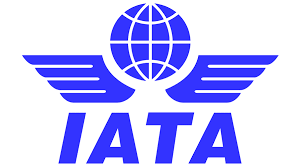Airlines still grappling with pandemic losses as govts impose more taxes on sector
By Jeph Ajobaju, Chief Copy Editor
Airlines local and international are still grappling with losses incurred during the coronavirus pandemic even though the economic lockdown it spawned lasted less than a year and ended back in 2021, according to the airlines’ group.
The International Air Transport Association (IATA) said the aviation sector is still recovering from losses of the pandemic which crippled flight operations globally.
African aviation lost an estimated $7.7 billion in 2020 as governments imposed flight restrictions to combat the spread of COVID-19.
IATA estimated Nigeria lost about N21 billion monthly during the period and analysts have said it would take until 2024 for the aviation sector to improve and return to 2019 levels.
Kamil Alawadhi, AITA Regional Vice-President, Africa and Middle East, counselled governments to stop seeing aviation as a cash cow, so the sector can harness its growth potential.
“Africa’s aviation industry is still recovering from significant losses due to the pandemic.
“To make up for this shortfall, governments should avoid imposing higher fees, levies, carbon taxes or new taxes on air transport, trade or tourism,” he said at the 55thAFRAA Annual General Meeting in Kampala.
“These measures would only make air travel more expensive and less accessible in Africa, where the average airfare is already 30 per cent higher than the industry average and jet fuel cost is 10-20 per cent higher than the global average.”
__________________________________________________________________
Related articles:
Nigeria on $700m leads in foreign airlines’ $1.68b trapped funds in Africa
Restricted operations cost local airlines N4b yearly
Domestic airlines adjust for more flight seats to raise revenue
__________________________________________________________________
Higher costs discourage consumers and reduce revenue
The sector continues to recover, he stressed, but higher costs will discourage customers who are sensitive to prices, which will impact revenue, per The PUNCH.
“They would also hamper economic development and limit the opportunities for job creation and income generation. High cost leads to high price, which reduces demand and growth in a price-elastic market, and ultimately affects connectivity negatively.’’
Alawadhi urged governments to follow the policies of the International Civil Aviation Organisation (ICAO) on charges and infrastructure and consult with airlines and industry to ensure a fair and cost-effective operational environment that benefits a more connected African continent.














